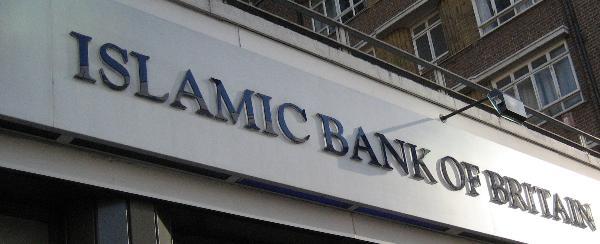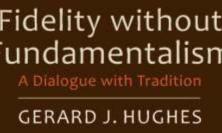
In the media storm over the Archbishop of Canterbury’s remarks about Sharia’a Law, little attention has been given to the City, where English Law and Sharia’a are already working in apparent harmony. Joe Egerton explores the Financial Services Authority’s approach, and its proud boast that it can and does authorise firms offering products that comply with Sharia’a.
The current furore surrounding the Archbishop of Canterbury seems to have been triggered by the following exchange on the BBC:
Question by Christopher Landau of the BBC: “ …your words are that the application of Sharia’a in certain circumstances if we want to achieve this cohesion and take seriously people’s religion seems unavoidable?”
Archbishop of Canterbury: “It seems unavoidable and indeed as a matter of fact certain provisions of Sharia’a are already recognised in our society and under our law; so it's not as if we're bringing in an alien and rival system;…”[i]
This, compressed into the proposition that the application of Sharia’a is unavoidable, is at the centre of the storm. All else that the Archbishop said appears to be treated as ancillary to this or to have been ignored.
An example of Sharia’a recognised under English law
The Archbishop is of course entirely correct to observe that certain provisions of Sharia’a are now recognised by our society. One example of this is the authorisation by the Financial Services Authority (FSA) of the Islamic Bank of Britain. This was an entirely deliberate decision of the FSA, one that it has publicised, and which builds on work done by Eddie George (Lord George) as governor of the Bank of England. The remainder of this article explains what this decision involves, as it is perhaps helpful to understanding what the Archbishop may have had in mind. It certainly confirms the truth of the proposition that “certain provisions of Sharia’a are already recognised in our society and under our law.”
The FSA regarded authorisation of the Islamic Bank of Britain as important and something of which it is proud, as is shown on the FSA website[ii]. The chairman of the FSA, Sir Callum McCarthy, is reported as saying: “We at the FSA are proud to have helped in the establishment of the Islamic Bank of Britain through resolving a number of regulatory issues, the most problematic of which was the treatment of Islamic deposits. By settling this, and other, issues we have not only enabled the Islamic Bank of Britain (now with seven branches) to be set up, but have also enabled already established banks, including some of the traditional high street banks, to offer Sharia’a compliant products.”
The FSA chairman was quite explicit about the problem that would have arisen if the FSA had not worked with the founders of the bank to enable authorisation: “It would have been an invidious form of social exclusion for regulation to have prevented the development of financial products which conformed with their religious beliefs, and therefore to have condemned them to a position where their religious beliefs prevented them from accessing financial services.” He was also conscious of the economic loss that London would suffer if it did not enable institutions that respected Sharia’a to base international operations here.
Regulation as a legal order
Regulation of financial services is a matter of law in the United Kingdom. The primary statute is the Financial Services & Markets Act 2000 (“The Act”), under which the FSA can make its own rules which also have the force of law.
Let me offer a concrete example of a Rule of the FSA. “If a firm makes a personal recommendation in relation to a life policy, it must provide the client with a suitability report.”[iii] Any firm breaking this rule is exposed to an unlimited fine, removal of its permission to do business and action for damages. The FSA is not able to act capriciously – anyone who disputes a penalty can appeal to the Financial Services & Markets Tribunal, the members of which are appointed by the Lord Chancellor, with the right to appeal to the Appeal Court.
Directors and senior managers of a firm authorised by the FSA may themselves be punished by the FSA for their part in breach of FSA rules and principles by an unlimited fine or a ban from practising their profession. To become directors, they have first to be approved by the FSA, which requires them to acknowledge the validity of the regulatory standards of the FSA. Again, any individual adversely affected by a proposed decision of the FSA may take their case to the Tribunal and ultimately the Appeal Court.
A dissatisfied client of a firm can make a complaint[iv] to the firm; the firm has to investigate that; and if the client is not satisfied with the response, the client may refer the matter to the Financial Ombudsman Service (FOS), which may direct a firm to pay up to £100,000 in compensation. An award by the FOS can be enforced through the Courts.
It is beyond doubt that we have here decision taking bodies that are part of the English legal structure.
Does the authorisation of the Islamic Bank of Britain mean that Sharia’a has displaced English law?
The terms and conditions of the Islamic Bank of Britain[v] expressly require that those who become clients themselves acknowledge Sharia’a; it has a Sharia’a supervisory board and its terms and conditions of business refer repeatedly to Sharia’a, making it clear that its clients are expected to acknowledge Sharia’a.
However the FSA seems to have taken a good deal of care to minimise the scope for conflict. Clients of the bank are required to agree with the bank terms and conditions[vi] that explicitly fit Sharia’a into a framework of English law. Thus section 14 – Governing Law - reads:
14.1 The laws of England govern these conditions.
14.2 We (sc. the bank and the client) both recognise and agree that the payment and/or receipt of interest is against Sharia’a principles and consequently this agreement does not involve the payment or receipt of interest. We both agree with each other that neither of us will in any proceedings against the other, claim interest from the other and we both expressly waive and reject any entitlement to recover interest from the other.[vii]
Specific areas of potential conflict are also carefully addressed. Thus in Section 6 of the Special Conditions that apply to the Islamic Savings and Term Deposit Account of the bank, the following appears:
6.3 As a matter of English law (which applies to these special conditions) and in accordance with our Memorandum and Articles of Association, in the event that your capital suffers a loss, we shall seek to mitigate the loss in the following manner…
6.4 If the pooled funds referable to your capital return a loss, we shall make an offer to you to make good the amount of any shortfall that you may have suffered. We are required by current UK bank regulations and policy to make this offer to you. If you choose to accept this offer, you shall be entitled to receive payment from us of the full amount that you had previously deposited with us. You are entitled to refuse this offer from us.
6.5 We would like to draw your attention to the guidance offered by our Sharia’a Supervisory Committee. Their guidance is that if you accept our offer to make good the amount of any shortfall (set out in special condition 6.4), you will not be complying with Sharia’a principles.[viii]
It is also clear that the FSA has applied a pragmatic approach to interpreting its own rules. The bank has a Sharia’a Supervisory Committee. The role of the Committee is very carefully defined so that, although they obviously have great influence and power, they do not actually do anything that would require them to be approved by the FSA; and consequently under the Act they cannot be punished for breaches of FSA rules applying to bank directors.
Although the FSA has minimised the scope for conflict and been careful to protect the primacy of the law of England, there are two possible areas for future conflict between the law of England and Sharia’a.
First, authorisation requires ongoing compliance with the FSA’s threshold conditions. At some point, an issue could arise that has not been addressed by the FSA.
Second, the bank is required to accept decisions of the FOS in resolving disputes. A client is most likely to appeal to FOS either when there is a dispute over what Sharia’a requires or if the client apostatises.
Under Section 228 of the Act, the FOS is to base its decisions on “what, in the opinion of the ombudsman, is fair and reasonable in the circumstances of the case”. FOS believes that this means that it is not bound to follow the law of England. In an effort to clarify the position, FOS is required by an FSA Rule to take account of “relevant law”. This rule was not, I think, drafted with an eye to Sharia’a, because it does not specify English or Scottish law. If the FOS is correct, and it is not required to decide cases in conformity with the law of England, an ombudsman could, as the rule is currently drafted, decide that Sharia’a (or Jewish) law was the relevant law for deciding a particular dispute; in which case Sharia’a would have displaced the law of England. [ix]
FSA Principles, Rules and Sharia’a
Sir Callum McCarthy was clearly conscious that the FSA had taken decisions that involved what might be described as an interesting interpretation of its own rules. His justification was that the FSA had secured adherence to its “principles”:
You will note that I have been discussing the principles, not the detailed rules, of FSA regulation. We are striving to make greater use of principles, and less use of rules, across the FSA's activities. The issues arising in respect of Islamic finance – the special position of the Sharia Supervisory Board within an Islamic Bank, the rights of the bank customer under a mudaraba contract, or various accounting issues being addressed by the Islamic Financial Services Board – are specific and require specific solutions. But the principles which will be applied – adequate resources, sound corporate governance, reliable systems and controls, transparency, treating customers fairly – are general. Our challenge, for both the FSA and for Islamic banks, is to find the specific solutions which maintain the force – and the confidence – which those principles confer. I am very glad that to date we have together succeeded in doing this. I am determined that we continue on this path.
The FSA’s principles are, as I have explained in an earlier article[x], virtues or excellences, and are demonstrably part of the structure of cardinal virtues described by St Thomas Aquinas in the Summa Theologiae. And in such a system the principles are necessarily primary and rules secondary. The FSA principles are of course part of English law, being made under the Financial Services and Markets Act. It would however be a large error to assert that the virtues or excellences embodied in the FSA principles are ‘English’ or ‘London’ virtues. As the City of London is an international centre, the FSA needs universal excellences – virtues recognised by all humankind.
This has an implication for the current controversy. It would appear from the FSA’s authorisation of the Islamic Bank of Britain that followers of Sharia’a have no difficulty with the FSA principles. Certain points have to be clarified, and, as has been seen, it sometimes necessary to say “under English law you have this entitlement, but as a good follower of Sharia’a you will not claim it.” But it is entirely possible for everyone to agree, and in this case everyone has agreed, on basic principles that every reasonable human being will accept. These principles are not British, or Islamic, or Judaic: they are part of our common heritage as human beings, made in the image of God.
This is not to say that there is or even can be agreement in every area. But it is undoubtedly possible that if in non-financial areas those making law and policy displayed the combination of ingenuity, persistence and good will that followers of Sharia’a and the FSA displayed in setting up the Islamic Bank of Britain then there will be many areas where English law would not in any way exclude from civil society those who followed Sharia’a. This should not surprise anyone who has learned from St Thomas Aquinas that all human beings (or at least all human beings who do not actively deny a God who loves us[xi]) have a natural capacity to practice the cardinal virtues.
Envoi: Christians, St Thomas and Sharia’a
St Thomas lived in a time in which the treatment of followers of other religions by Christians in government was a live issue – Christians ruled over Muslims and Jews in the Holy Land and Spain. St Thomas unambiguously condemned any attempt to compel unbelievers to believe.[xii] To deny somebody the opportunity to participate fully in civil society unless they abandon or act against their beliefs is a form of pressure to believe, discrimination and a form of (mild) persecution. Every Christian – perhaps especially Bishops and others in authority in the Church – is bound to work to end such persecution, regardless of the faith of the victim.
It is of course a matter of prudentia (practical wisdom) as to what words and actions are likely to prove most effective in bringing religious discrimination to an end, and in the closely associated task of shaping the secular order so that it does not conflict with divine law.
Joe Egerton is a management consultant who has specialised in financial markets and regulated industries for over 20 years. He is an occasional lecturer at the Mount Street Jesuit Centre.
[ii] 13 June 2006: Regulation and Islamic Finance. http://www.fsa.gov.uk/pages/Library/Communication/Speeches/2006/0613_cm.shtml
[iii] COBS 9.4.2R: http://fsahandbook.info/FSA/html/handbook/COBS/9/4
[iv]A complaint is defined by the FSA as “any oral or written expression of dissatisfaction, whether justified or not, from, or on behalf of, a person about the provision of, or failure to provide, a financial service, which: (a) alleges that the complainant has suffered (or may suffer) financial loss, material distress or material inconvenience; and (b) relates to an activity of that respondent, …, which comes under the jurisdiction of the Financial Ombudsman Service.” http://fsahandbook.info/FSA/html/handbook/Glossary/C
[v] See www.islamic-bank.com for information about the Islamic Bank of Britain
[vii] Ibid, page 21; repeated as special condition 8 on page 26 at the conclusion of the special conditions.
[viii] Ibid, pages 25 and 26
[ix] DISP 3.8.1 http://fsahandbook.info/FSA/html/handbook/DISP/3/8 The extent to which FOS can ignore the law of England (and whether it is required to hold a public hearing) is the subject of a hearing in the Appeal Court currently set down for 23rd April 2008 – a judicial review brought by Heather, Moor & Edgecomb Ltd; permission for Judicial Review was given by Lord Justice Laws, who directed that the case be heard in the Appeal Court, not the Administrative Court. Although Sharia’a is not mentioned in the Application, if the Appeal Court rules in favour of the Applicant, then FOS would be required to apply the law of England, which would have relevance to the relative standing of Sharia’a.
[x] St Thomas Aquinas and the Temple of Mammon: 31st January 2008
http://www.thinkingfaith.org/articles/20080131_1.htm
[xi] Alasdair MacIntyre (Whose Justice? Which Rationality?) seems to me to have presented irrefutable arguments that St Thomas regarded his arguments in the First Part of the Summa concerning the existence of God as underpinning the whole of the Second Part. A number of modern scholars have attempted to argue that the Thomist arguments on the virtues can stand independently of the First Part; but it seems to me that these accounts fail to provide an account of aberrant regimes (e.g. Hitler’s). A wilful refusal to acknowledge God seems to provide an answer.
[xii] ST IIa IIae Q10 Art8 Nota Bene: St Thomas was talking here about other religions (of which Judaism and Islam were the best known to him). He had a decidedly less tolerant attitude to heresiarchs (those Christians who took a leading role in promoting heresy) – in extremis, he thought that they could be suppressed by penal sanctions including death. So of course did many others for centuries to come – including St Ignatius, if the situation was desperate enough, despite his strict ban on calling protestants names (he strongly disapproved of St Peter Canisius comparing Luther with “a hog in heat”) and his constant advice to identify common ground to work for the return of protestants to the faith.





